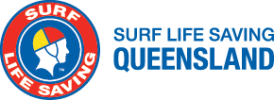This guideline is used to help recognise and overcome the risks associated with the provision of lifesavers services in regions which crocodiles may inhabit.
For the purposes of this document the word ‘crocodile’ is used in the broad sense to include all crocodiles, alligators, caimans and gharials. While any of these species has the potential to be dangerous, the risk in Australian waters is most commonly associated with estuarine or saltwater crocodiles.
Estuarine crocodiles live mainly in the tidal reaches of rivers as well as lagoons, swamps and waterways – up to hundreds of kilometres from the sea. They can occur on beaches and around offshore islands. They are most active at night.
SAFETY GUIDELINES
For the full Crocwise safety guidelines visit: Be Croc Wise – QLD Government
The following general safety guidelines apply in crocodile areas and should be promoted to the public so they can take appropriate self-precautions:
• Obey crocodile sign – they are there for your own protection;
• Never swim in water where crocodiles may live, even if there is no warning sign present;
• When fishing, always stand a few metres back from the water’s edge and never stand on logs or branches overhanging the water;
• Never clean fish or discard fish scraps near the water’s edge or at boat ramps;
• Stay well back from any crocodile slide marks. Crocodiles may still be close and may approach people and boats;
• Never dangle your arms or legs over the side of a boat. If you fall out of a boat, get out of the water as quickly as possible;
• Never provoke, harass or interfere with crocodiles—even small ones;
• Never feed crocodiles—it is illegal and dangerous.
• Camp at least 2m above the high-water mark and at least 50m from the water’s edge. Avoid places where native animals and domestic stock drink;
• Never leave food scraps at your campsite. Always check that previous campers have left no food scraps;
• Never prepare food, wash dishes or pursue any other activities near the water’s edge or adjacent sloping banks
• Be more aware of crocodiles during the breeding season—September to April.
ACTIONS IN EVENT OF CROCODILE ATTACK
Crocodile attack injuries can result in massive tissue damage and severe blood loss;
• Return the patient to shore as quickly as possible ensuring personal safety;
• Apply immediate first-aid (basic life support/control bleeding);
• Notify Surfcom who will engage relevant emergency services; and
• Follow precautions outlined in ‘Actions on Sightings’.
Please click on the below link to LS03 – CROCODILE POLICY
Crocodile Sighting Procedure
Notify Surfcom if you sight a crocodile, they will create an incident which will notify relevant authorities.




Post your comment on this topic.